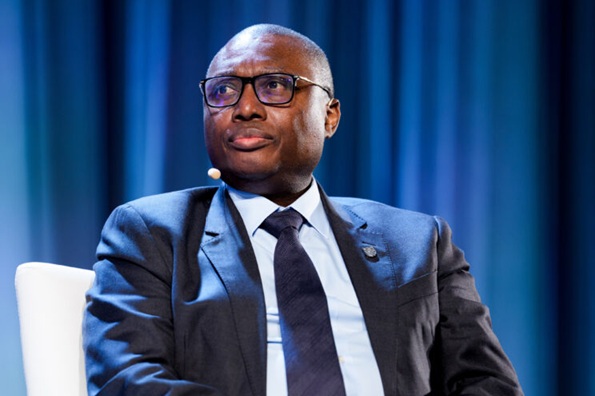Trump aid cuts deal a blow to HIV prevention in Africa
Africa pays ‘scandalous’ premium to borrow, top bankers say

FILE - Sim Tshabalala. [File photo: Bloomberg/Aaron Schwartz]
The credit ratings of most African nations are much lower than similar sovereigns elsewhere in the world, costing them billions of dollars in additional debt-service payments and denting vital economic growth, according to three of the continent’s top bankers.
“It’s actually scandalous,” Standard Bank Group chief executive officer Sim Tshabalala told the inaugural Bloomberg Africa Business Summit in Johannesburg on Tuesday.
“The additional borrowing costs wipe out about two percentage points on African” gross domestic product, he told a panel alongside Kenny Fihla and Roosevelt Ogbonna, the CEOs of Absa Group and Nigeria’s Access Bank Plc respectively.
Africa Finance Corp, a development bank, has dubbed the lower credit ratings a “prejudice premium,” estimating that the continent spends as much as $75 billion a year in additional borrowing costs. That extra charge is becoming more important, with 2025 shaping up to be the busiest for African debt sales since at least 2021.
Tshabalala said that African sovereigns were rated about four rungs lower than they should be, Absa’s Fihla agreed.
“There is no doubt that there’s a massive perception premium” that the region must work on to “make sure that Africa is appropriately positioned — that the rating is based on the actual facts,” he told the panel.
A July study by the International Monetary Fund found that sub-Saharan African nations pay about half a percentage point more in the bond market than similarly rated countries, and that it tends to increase during times of stress.
Still, investors know how to judge risk, said Access Bank’s Ogbonna. He noted that Nigeria successfully tapped the eurobond market in recent weeks, despite negative headlines from US President Donald Trump about what he claimed is the large-scale killing of Christians – a characterisation that Africa’s most populous nation dismisses as untrue.
“The markets were smarter than just the narrative,” he said, noting that Nigeria went to the market to borrow more than $2 billion and could have raised more. “I think that’s enough affirmation of how the markets perceive the Nigerian economy today,” Ogbonna said.












Leave a Reply
Be the First to Comment!
You must be logged in to post a comment.
You must be logged in to post a comment.